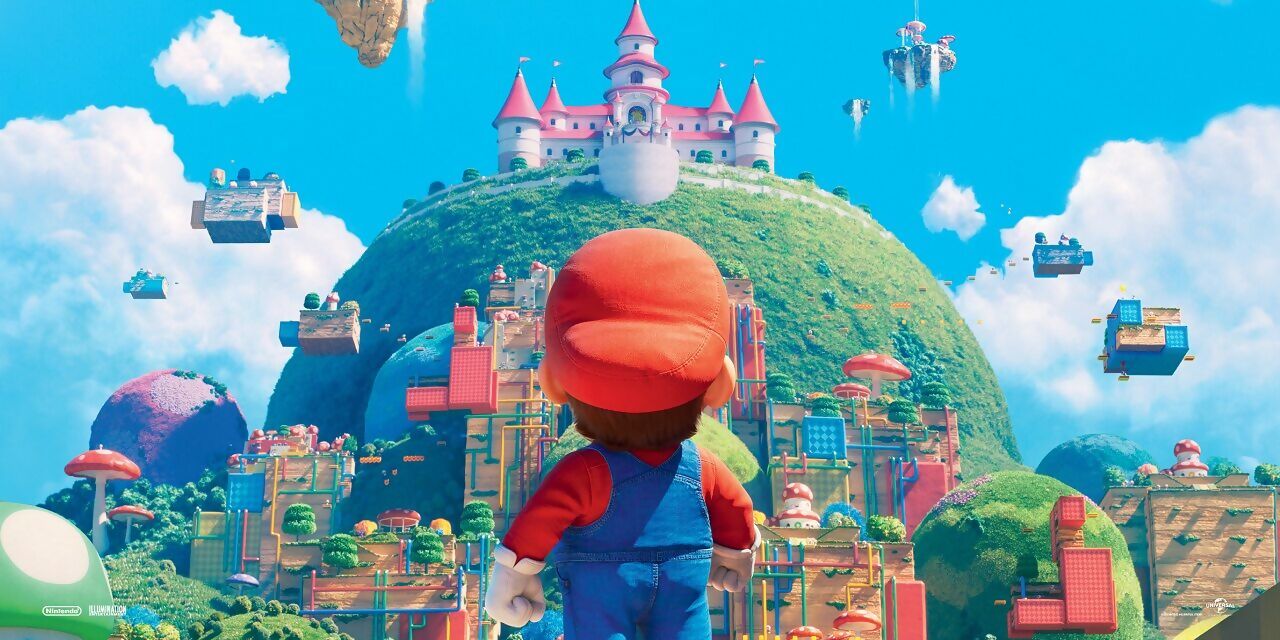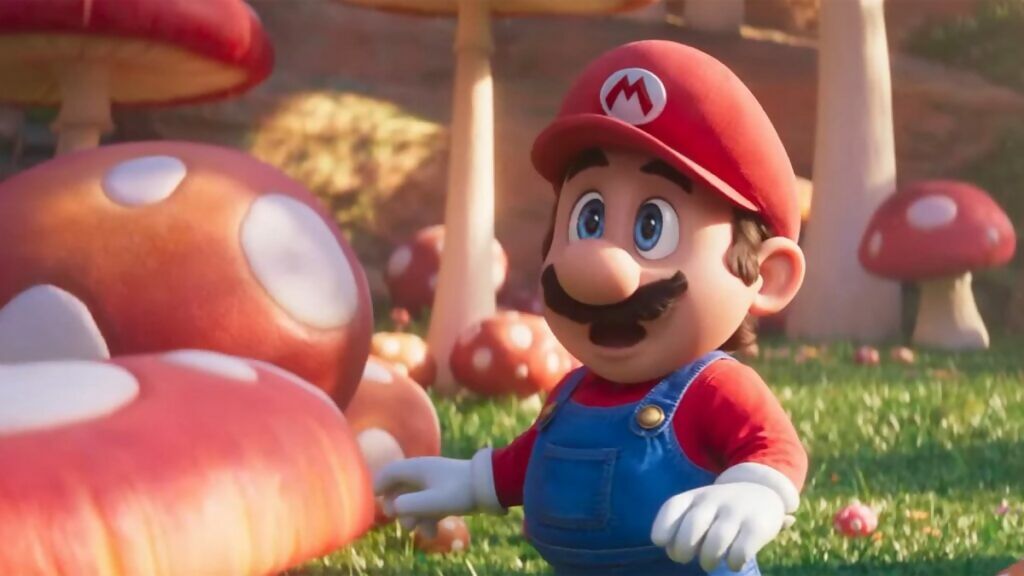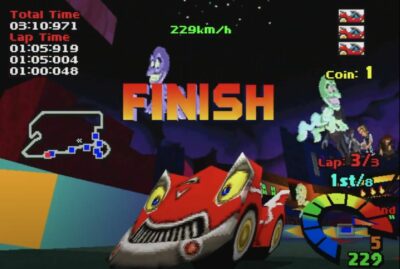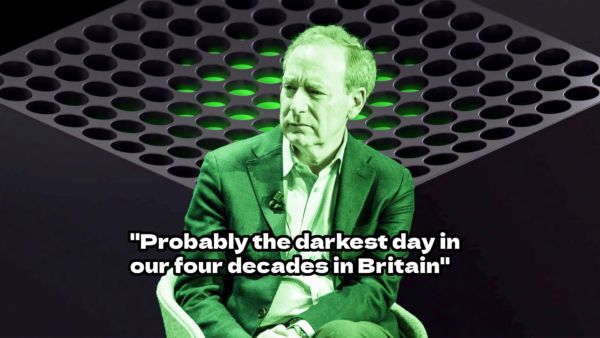
Video game movie and TV adaptations are drawing more audiences than ever. With even more to come, should we be excited or beware of what we wish for?
Much has been written about the video game curse being finally broken in 2023, which would conveniently overlook the acclaim for Netflix’s video game animations like Castlevania, Cyberpunk 2077, and League of Legends. In fairness, they’re not quite as headline-grabbing as HBO’s The Last of Us, which has smashed records in TV ratings, or The Super Mario Bros. Movie, which despite drawing ire from movie critics, isn’t just the highest grossing movie of the year so far but already the highest grossing video game movie of all time.
In other words, video games shows and movies are now in fashion, and something fans can look forward to, rather than something to be embarrassed – nor do you have to delude yourself that the abominations made in the 90s were actually campy cult classics. I should hasten to add that video game adaptations are still something of a mixed bag; it’s easy to forget that the Tom Holland-starring Uncharted movie and the already-cancelled Resident Evil Netflix show only emerged last year. The point remains, though, that video game movies and shows are big business for Hollywood now, which means we’re only going to see more of them.
Already in the works are TV shows based on God Of War and Horizon, as well as an upcoming Gran Turismo movie. A second Sonic sequel is set to arrive in 2024, while Sega had previously announced it was developing a new live-action movie based on Yakuza/Like A Dragon. Most recently, Legendary Pictures announced it was partnering with Capcom to make a new live-action Street Fighter movie. Even the revival of the Silent Hill franchise had a movie adaptation of Silent Hill 2 announced alongside its video game remake.
As someone who loves games and is engrossed in them on a daily basis, I should be thrilled by all this. That the original games’ creators, be it Shigeru Miyamoto or Neil Druckmann, have creative involvement in these adaptations also helps ensure that the results will be faithful rather than something cynically hashed together by execs who don’t know the first thing about the source material.

Nintendo Cinematic Universe, anyone? Credit: Nintendo.
And yet, I do wonder if this trend means game adaptations are heading down the Marvel route. To some extent, some of those cues are already there, from the PlayStation Studios start-up ident apes the Marvel Studios animated logo, to how both the Mario and Sonic movies also have post-credit scenes to tease a sequel. Meanwhile, fans of the former are already formulating theories of an upcoming Nintendo Cinematic Universe. Is anyone else exhausted by cinematic universes?
Video games naturally share parallels with comic books. Both were once considered a nerdy niche that have grown to become massive mainstream entertainment, but the latter’s movies and shows have also transformed the landscape of that medium, with more and more releases saturating the market and dominating the cultural conversation at the expense of virtually everything else. Some would point to it as a further example of the death of cinema, or that this is merely a symptom of Hollywood’s continued emphasis on commerce over art, or content over quality. It could be said that there are parallels with the way the old studio system collapsed in the late 1960s – except these days executives are armed with algorithms and metrics to ensure they’re giving us what we (supposedly) want.
Even if you think there are too many superhero movies, we can at least agree that they have decades of rich storytelling material to draw from. The same can’t be said for video games. Sure, we can point to more interesting narratives in recent years, but that’s still a relatively shallow well. How do you suppose Nintendo is meant to build a cinematic universe without any story at its foundation? Are fans really content with another 90 minutes of fanservice, mistaking Easter eggs for mise-en-scène?
Okay, but what about PlayStation, whose cinematic games do take pride in storytelling? They make perfect sense for adaptation, right? But as much as I enjoyed the first season of The Last of Us, I’m also however wary that many of the platform holder’s games have almost cynically been trying to follow the same prestige TV tone. It’s as though every game is being made with the intent of also being adapted for the screen, where telling the story comes at the expense of meaningful gameplay. Indeed, watching the HBO show has only made me feel more conscious of the inherent gaminess of spending your time going on murder sprees and carrying ladders in between its prestige story beats.
In contrast, it’s the Gran Turismo movie I’m most intrigued about – precisely because it’s not making a movie out of the game, but rather bases it on Jann Mardenborough, who went from playing the game to competing as a real professional motorsport racer. It’s why I also enjoyed the Tetris movie, which wasn’t some dreadful attempt to make a story about falling blocks but about the fascinating legal battle to retain the game’s worldwide rights, all framed as a Cold War thriller. At heart, these are stories of human drama that can resonate with anyone regardless how familiar they are with its subject matter or culture.
I do think, however, that video game adaptations have an advantage over the likes of the MCU and James Gunn’s DCU. That advantage lies in the diversity of stories and settings they can offer – video games are a medium rather than a genre, after all. While it can be hard to distinguish one superhero movie with big green-screen special effects from another, one can obviously see The Last of Us and the Super Mario Bros. Movie are night and day in terms of aesthetics, tone, narrative, and target audiences.
Away from the likely triple-A candidates, it’s also encouraging that more narratively rich, indie-flavoured fare, such as Life Is Strange and Disco Elysium, are also being adapted to the screen via Amazon. If I were to give Nintendo the benefit of the doubt, it could be that the company opted to play it safe for its first official film production, and perhaps for inevitable sequels, it will let its screenwriters off the leash and really play around with its characters and locations with the same wit as, say, the Paper Mario games.
Video game movies may be better than they used to be, but I hope I don’t end up becoming sick of them in the same way I’ve become with comic book films, or that they end up having a diminishing effect on the games themselves. Future game streams will likely have game trailers jostling for space with movie trailers – something you could say has already happened, with Nintendo Direct presentations dedicated to the announcement of a new Mario movie trailer.
At the end of the day, you know what’s better than video game movies? The actual games.
Read more: Super Mario Land | Celebrating the weirdness of Mario’s Game Boy debut





